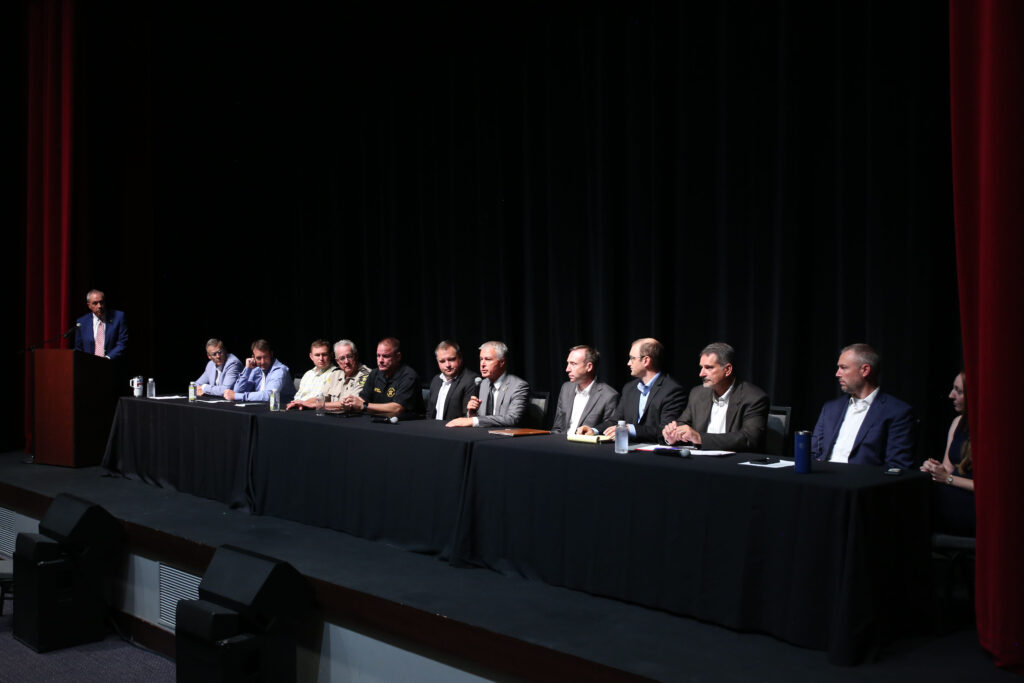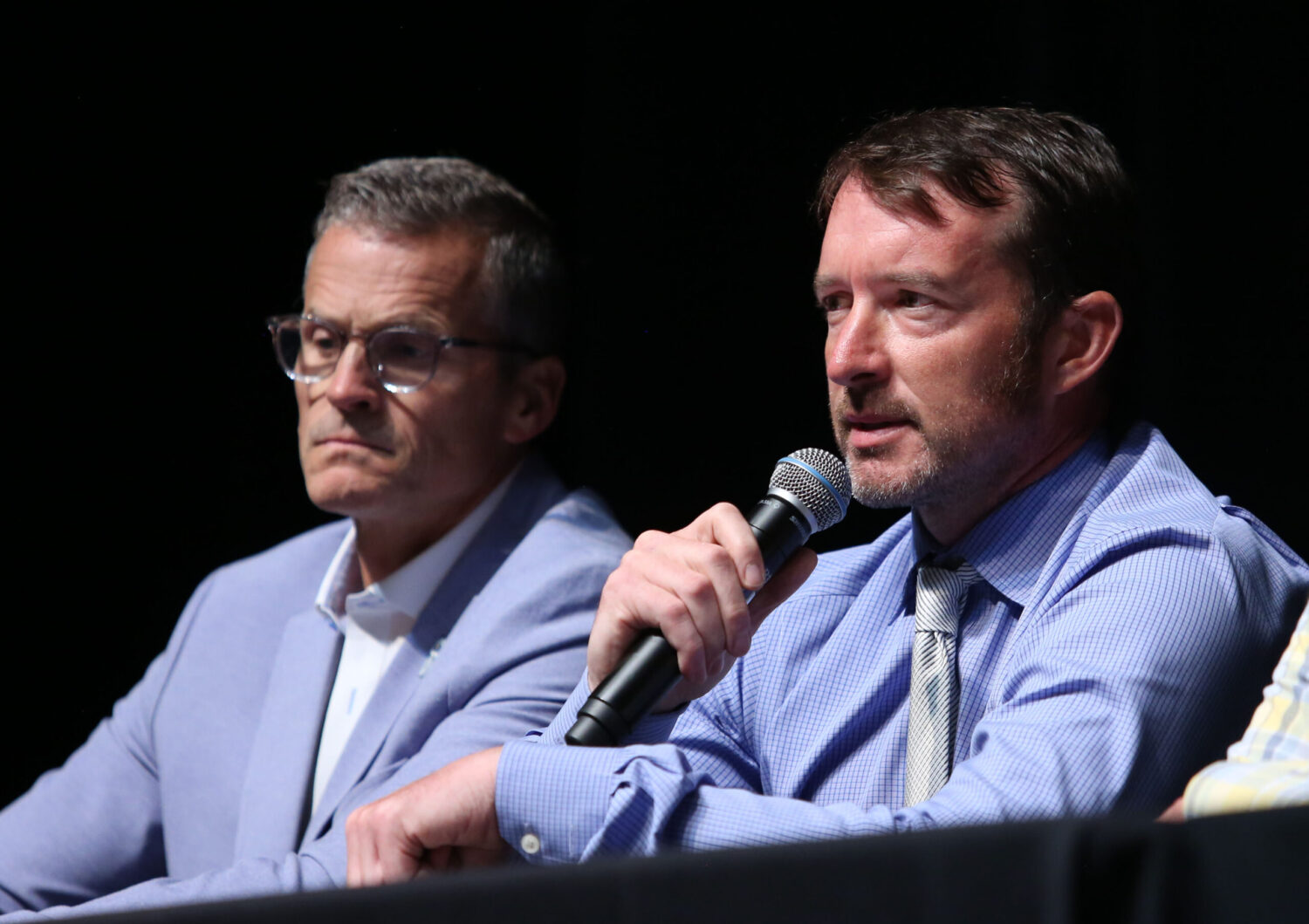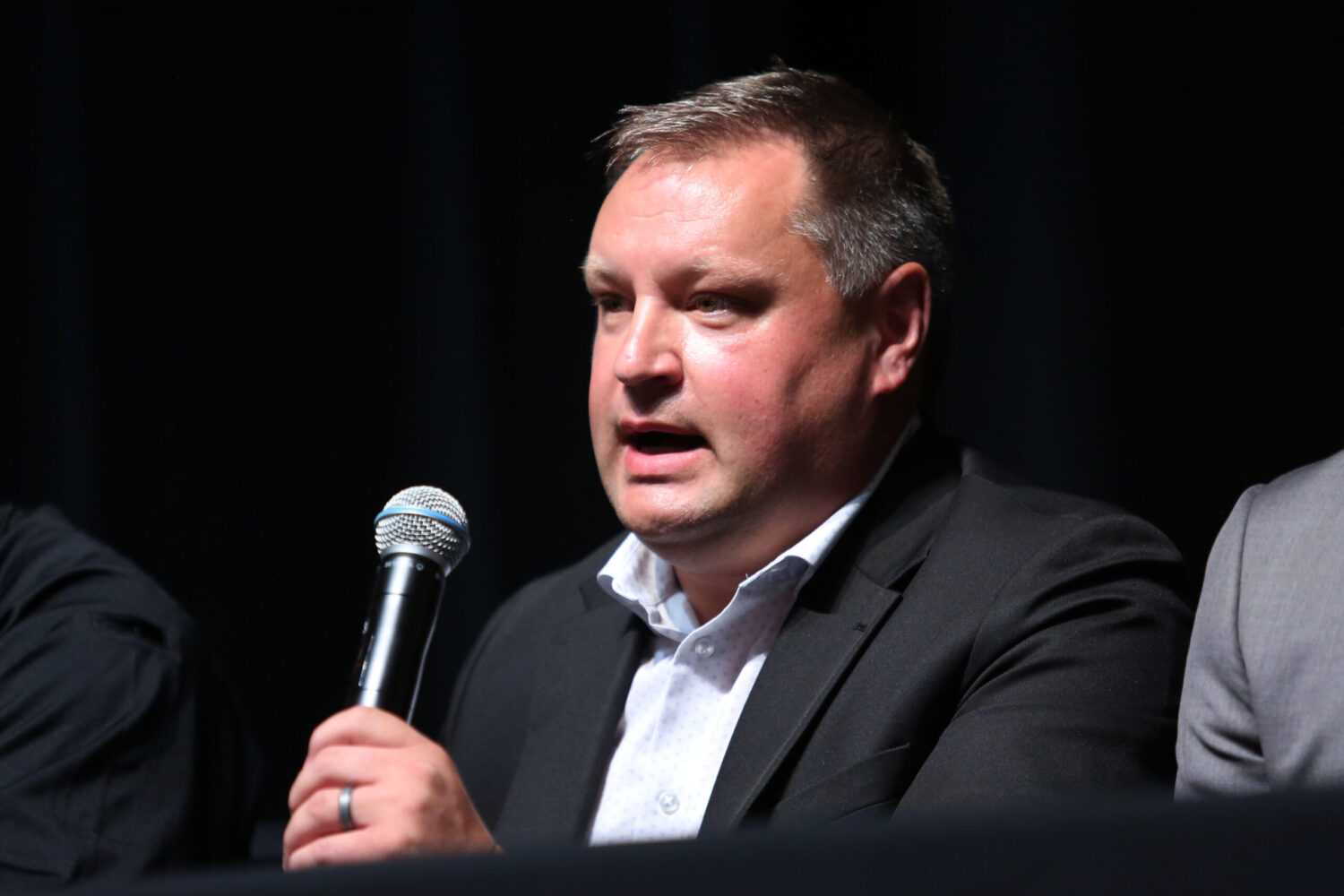
Law enforcement, Sioux Falls officials and legislators participate in a forum on July 22, 2025, in downtown Sioux Falls about the proposed construction of a men’s prison in the northeastern part of the city. (Makenzie Huber/South Dakota Searchlight)
SIOUX FALLS — Mayor Paul TenHaken isn’t “kicking and screaming” against the proposed construction of a larger men’s prison in northeastern Sioux Falls. But he’s not thrilled about it.
“There are consequences to that and there are costs to that,” TenHaken said.
He was among several speakers at the Safer Sioux Falls Forum held Tuesday in downtown Sioux Falls.
Earlier this month, a state task force endorsed a 1,500-bed complex with a price cap of $650 million. The facility would replace the oldest parts of the state penitentiary, which has been in Sioux Falls for 144 years. Lawmakers will consider the proposal, and could select one of two undeveloped Sioux Falls sites, at a special legislative session in September.
The two sites in northeast Sioux Falls selected as potential prison locations.
Speakers at Tuesday’s forum didn’t debate whether the prison should be placed in the state’s largest city or not, unlike forums held in other communities where prison sites were considered. The focus was on how the state and local governments can partner to better use taxpayer dollars and help prisoners transition back into society. Topics included housing, rehabilitation and improving resources statewide for parolees.
About 95% of penitentiary inmates return to society after they serve their sentence. Sioux Falls Democratic state Rep. Kadyn Wittman said rehabilitation programming and appropriate facilities to encourage better reentry outcomes are the best “investment of taxpayer dollars.”
If a person is released from prison in Sioux Falls without a family member in town or housing lined up at a halfway house, Wittman said, “you are walking to the shelter.”
“That is where you are going to be restarting your life and reentering society,” said Wittman, who formerly worked at a Sioux Falls emergency shelter.
Shelters don’t always have case managers to help people deal with substance use disorders that went untreated in the prison system, for example. That needs to be achieved by the state Department of Corrections and other local agencies working together, Wittman said.
TenHaken said the Legislature can help the city invest in more “felon-friendly housing” with wrap-around supportive services.

Without proper housing and support services to reintegrate into society, people often reoffend or violate their parole. That “perpetually” works the person through the system, said Sioux Falls Police Chief John Thum, where they continue to reoffend and drain public resources in the criminal justice system.
Resources, Thum added, will make the biggest impact. He added that violent and property crime per capita is at a five-year low in the city.
“They’re not going to put a shovel in the ground yet,” Thum said. “This isn’t going to be up tomorrow. We have time to plan. We have time to appropriate. We have time to have these big conversations that are challenging.”
Many offenders reentering society relocate to Sioux Falls or Rapid City because the cities have resources they need and jobs available to them, speakers agreed. The Legislature should invest in parole resources and programs statewide so released prisoners from rural areas can return home, said Minnehaha County State’s Attorney Daniel Haggar.
“It’s important that as people parole out, they’re able to go back to their convicting counties, their home communities, and not sacrifice the rehabilitation that they may be able to get in Sioux Falls.”

Ryan Brunner, senior policy adviser for the Governor’s Office, said Gov. Larry Rhoden is open to suggestions about the services needed for people released from prison.
In an interview with South Dakota Searchlight after the meeting, Sioux Falls Republican Rep. Greg Jamison said lawmakers should view such requests as a “pay now or later” investment.
“I think the realistic option of funding treatment programming at a higher level than we’ve done is crystal clear,” Jamison said.
But the state budget is already stretched thin, said state House Speaker Jon Hansen, R-Dell Rapids.
Hansen hesitated to say whether the Legislature would support such investments and ideas, adding that lawmakers will need to balance the requests “among many other policy interests and fiscal interests.”
Follow further developments on prison construction: Sign up for our newsletter.


